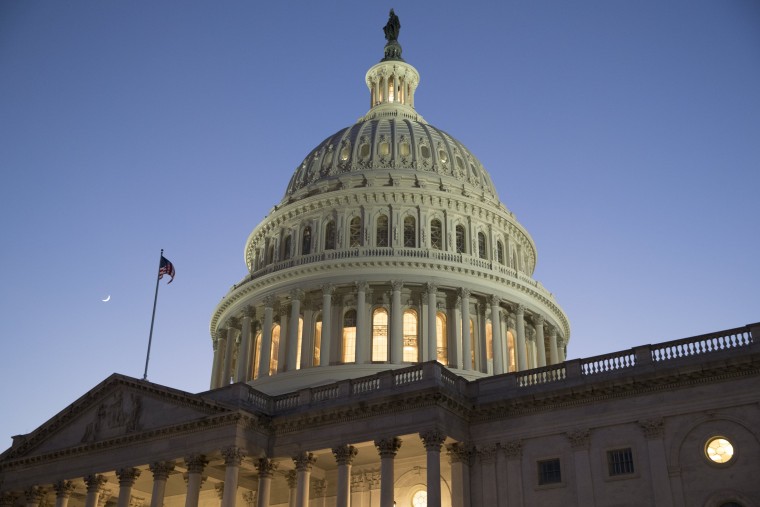In any political fight, there's a temptation to look at the story through a zero-sum lens: someone's winning and someone's losing; someone's on the offensive and someone's on the defensive; someone's getting the blame and someone's casting the blame.
And with this in mind, the recent government shutdown has been subject to the same kind of analysis, though there's an underlying truth that's gone largely overlooked: if congressional Republicans were better able to govern, the landscape would look very different.
The GOP-led House and Senate were supposed to pass a budget last year, but that hasn't happened. Congress was also supposed to pass appropriations bills to finance the government, but that hasn't happened, either.
And that's led to a series of stopgap spending bills, funding government operations a few weeks at a time through something called "continuing resolutions" (or CRs). When the end of the fiscal year approached, Congress kicked the can to early December. When that deadline approached, they punted to late December. And then Jan. 19. And then Feb 8.
And now Politico reports that more CRs are probably on the way.
Congress will need another stopgap spending bill on Feb. 8, because there is no chance the House will have an immigration deal by then, even if the Senate does. Then Congress would pass another stopgap until March -- just before the ultimate expiration of DACA.
Though I haven't seen the quote elsewhere, Senate Majority Whip John Cornyn (R-Texas) reportedly told CQ yesterday that he expects to pass "at least two more" continuing resolutions.
I realize the "federal budget process" isn't a phrase that screams "click bait," but for all the scuttlebutt about who's to blame for the shutdown, much of the political world has failed to acknowledge the breakdown in GOP governance.
The Washington Post's Catherine Rampell, who has acknowledged it quite well, explained this week that Senate Majority Leader Mitch McConnell (R-Ky.) and House Speaker Paul D. Ryan (R-Wis.) pushed aside basic governmental tasks in order to pursue ACA repeal and regressive tax cuts. The result was a backlog of things Congress needed to do, but didn't.
Some, such as the hurricanes that devastated Puerto Rico, were natural. Others were man-made: Authorization for the Children's Health Insurance Program (CHIP) lapsed, leaving 9 million low-income kids in limbo. And with McConnell and Ryan's blessing, President Trump announced that undocumented immigrants brought here as children would be subject to deportation come March, unless Congress acted.
No matter. The only thing McConnell and Ryan felt any urgency to work on was stuff their donors care about. They focused on that, and orchestrated more stopgap budgetary measures in their spare time.
In case this isn't obvious, Congress could've worked on more than one thing at the same time. Ryan and McConnell could've pursued far-right goals on health care and tax policy, for example, while also ensuring that relevant GOP officials focused on the budget and appropriations bills.
But they didn't.
And so, lawmakers on Capitol Hill are dealing with more messes of their own making, struggling to figure out what they'll do on immigration -- months after Donald Trump put Dreamers' fate in jeopardy -- while simultaneously struggling to find ways to keep the government's lights on.
This is, to borrow a cliché, no way to run a country.
